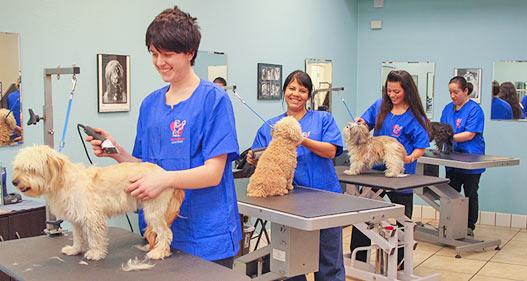
Are you a dog lover dreaming of turning your passion into a thriving business? If you’ve ever imagined yourself surrounded by wagging tails and happy barks while running your own dog grooming venture, you’re in the right place! Starting a dog grooming business can be not only rewarding but also incredibly fun. In this ultimate guide, we’ll walk you through nine essential steps to help you turn that dream into reality. From understanding the basics of grooming to marketing your services and building a loyal clientele, we’ve got you covered. So, grab your grooming tools and let’s dive into the world of dog grooming entrepreneurship—where every day is a furry adventure waiting to happen!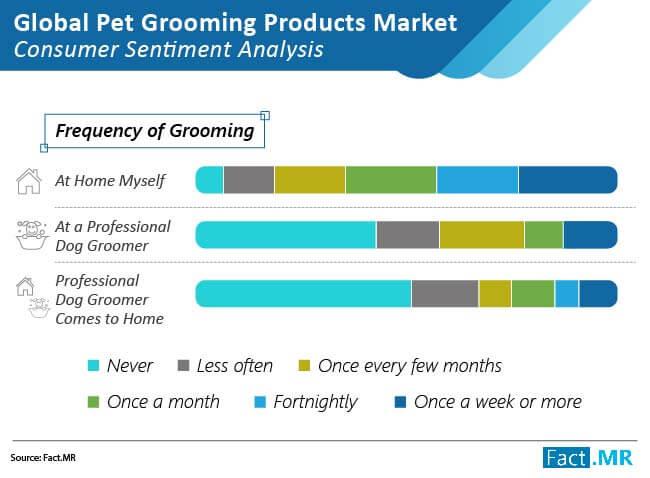
Understanding the Dog Grooming Market Landscape
As you embark on your journey to establish a dog grooming business, it’s essential to grasp the intricate landscape of the grooming market. The demand for grooming services continues to rise, fueled by a growing pet ownership culture and an increasing awareness among pet owners about the importance of hygiene and grooming for their furry friends. This presents a golden opportunity for aspiring groomers.
To truly understand the market, consider these critical aspects:
- Trends and Innovations: Keep an eye on emerging trends in grooming techniques, eco-friendly products, and technology integration, such as mobile grooming units and online booking systems.
- Target Audience: Identify your ideal customers, whether they are busy professionals, families, or luxury pet owners seeking premium services.
- Competitive Analysis: Research your local competitors. What services do they offer? What are their pricing strategies and customer feedback? This will help you carve out a unique niche for your business.
Additionally, consider the various segments within the grooming market. For instance, you could specialize in:
- Puppy Grooming: Focusing on young dogs can lead to lifelong clients.
- Luxury Grooming: Offering high-end services, such as spa treatments and personalized grooming plans.
- Mobile Grooming: Providing convenience by bringing grooming services directly to pet owners’ homes.
Another vital component of the grooming market is understanding pricing structures. A well-considered pricing strategy can make or break your business. Here’s a simple table that outlines common pricing tiers based on different service packages:
| Service Package | Description | Price Range |
|---|---|---|
| Basic Grooming | Bath, brush, and nail trimming | $30 – $50 |
| Full Grooming | Includes basic groom plus haircut | $50 – $100 |
| Specialized Services | De-shedding, flea treatments, etc. | $40 – $80 |
leveraging digital marketing can significantly impact your visibility and reach. Establishing a robust online presence through social media, a well-optimized website, and engaging content can help you connect with pet owners and build a loyal client base. Remember, pet parents are not just looking for services; they are searching for a trustworthy partner in their pet’s care.
Understanding the dynamics of the dog grooming market is not just about knowing who your competitors are; it’s about anticipating the needs of your customers and adapting your services accordingly. With proper research and strategic planning, your dog grooming business can thrive in this ever-evolving landscape.
Identifying Your Target Audience and Their Needs
Understanding your target audience is crucial for the success of your dog grooming business. The first step is to define who your customers are. Are they dog owners who prioritize convenience and quality, or are they budget-conscious pet parents seeking affordable grooming options? Knowing this will help tailor your services to meet their specific needs.
To effectively pinpoint your audience, consider the following factors:
- Demographics: Age, gender, income level, and family structure can all influence grooming preferences.
- Dog Breed: Different breeds have varying grooming needs and owners will likely seek services that cater specifically to their breed’s requirements.
- Lifestyle: Busy professionals might prefer mobile grooming services, while retirees may seek a more relaxed, personalized grooming experience.
- Geographical Location: Urban areas may have a higher density of dog owners willing to pay for premium services, while rural areas might focus on essential grooming needs.
Once you have a clear image of your audience, it’s time to delve into their specific needs. Conducting surveys or holding informal discussions can yield invaluable insights. Here are some key elements to explore:
- Service Variety: Are they interested in basic grooming, or do they want additional services like teeth cleaning, flea treatments, or spa treatments?
- Frequency: How often do they groom their pets? This can help you create packages that cater to their grooming schedules.
- Customer Service: What level of customer service do they expect? Friendly, knowledgeable interactions can set you apart.
Creating a customer persona can be an effective way to visualize your ideal client. This persona would include detailed descriptions that encompass their lifestyle, grooming habits, and even their purchasing behavior. Here’s a simple example:
| Name | Age | Occupation | Dog Breed | Grooming Preferences |
|---|---|---|---|---|
| Sarah | 32 | Marketing Manager | Poodle | Regular grooming, spa treatments |
| Mike | 45 | Teacher | Labrador | Basic grooming, budget-friendly |
Once you have identified your target audience and their needs, you can create tailored marketing strategies that speak directly to them. Whether it’s through social media, local advertising, or community events, emphasizing how your services meet their specific needs will resonate more effectively than generic messaging.
Lastly, don’t forget to continuously reassess your audience as trends and pet ownership habits evolve. Engaging with your customers through feedback programs, loyalty rewards, or even follow-up surveys can keep you in tune with their changing preferences and needs.

Creating a Solid Business Plan for Success
When starting a dog grooming business, a well-crafted business plan is essential for navigating the competitive landscape and ensuring long-term success. It serves as your roadmap, outlining your vision, defining your goals, and detailing the steps you need to take to achieve them. Here’s how to create a solid plan that will not only guide your business but also impress potential investors and secure funding.
1. Executive Summary: Begin with a concise overview of your business idea. This section should capture the essence of your dog grooming venture, including your mission statement, the services you plan to offer, and what sets you apart from competitors. Make it engaging; after all, this is your chance to make a first impression!
2. Market Analysis: Dive deep into the local pet grooming market. Research your target audience—dog owners in your area—and analyze their needs and preferences. Identify trends, such as the rising demand for organic grooming products or mobile grooming services, and tailor your offerings accordingly. Include a competitive analysis to highlight what makes your business unique.
3. Services Offered: Outline the specific services you will provide. Think beyond standard grooming to include:
- Specialized breed cuts
- De-shedding treatments
- Flea and tick treatments
- Pet spa services
- Mobile grooming options
Clearly defining these services will help you cater to your clientele’s diverse needs.
4. Marketing Strategy: Develop a robust marketing plan that will attract customers. Leverage both online and offline channels:
- Social media advertising targeting local pet owners
- Collaborations with local veterinarians and pet shops
- Promotions and loyalty programs to incentivize repeat business
- Engaging video content showcasing your grooming skills
Consider using a blend of traditional marketing and modern digital strategies to reach a wider audience.
5. Financial Projections: Create realistic financial forecasts that outline your startup costs, operating expenses, and expected revenue. Make sure to include:
| Expense Category | Estimated Cost |
|---|---|
| Equipment & Supplies | $2,500 |
| Marketing Costs | $500 |
| Rent & Utilities | $1,200/month |
| Insurance | $800/year |
These projections will be instrumental in tracking your business’s financial health and attracting potential investors.
6. Operational Plan: Detail the day-to-day operations of your grooming business. Discuss staffing needs, hours of operation, and the grooming process from appointment scheduling to customer feedback. This section should reflect your commitment to quality service and customer satisfaction.
By focusing on these key areas when crafting your business plan, you’ll set a solid foundation for your dog grooming venture. A well-structured plan not only keeps you organized but also communicates your passion and professionalism to everyone involved in your business journey.
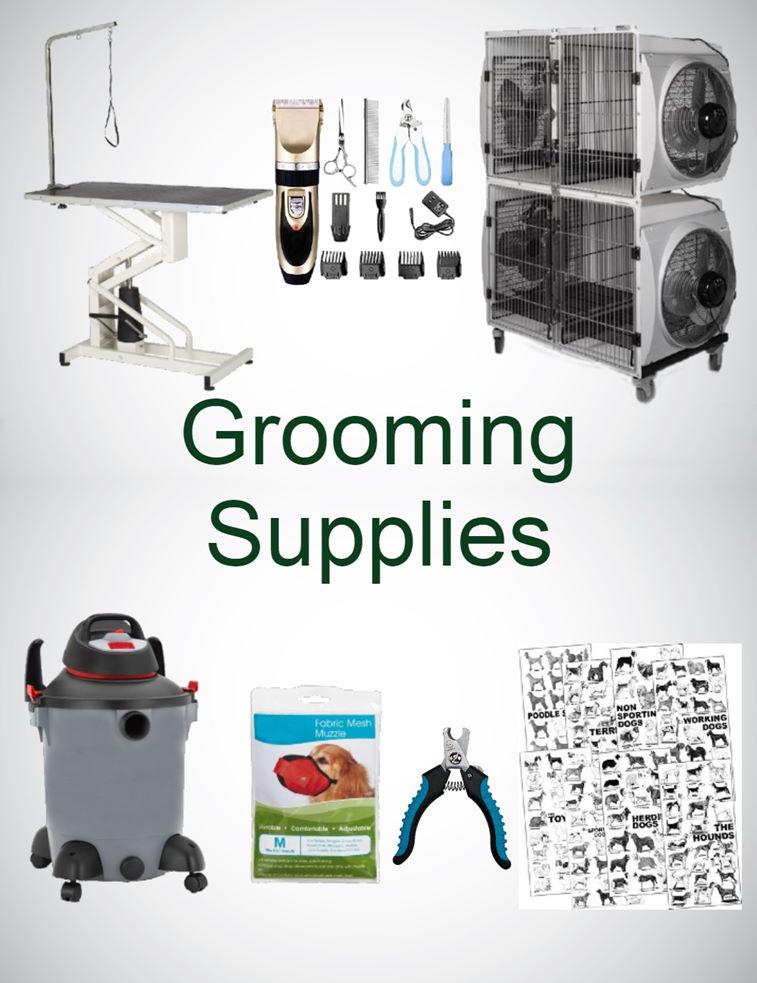
Essential Equipment Every Groomer Should Have
Starting a dog grooming business requires more than just a passion for pets; it necessitates the right tools to ensure your furry clients look their best. Investing in high-quality equipment can make a significant difference in the efficiency of your services and the happiness of your four-legged customers.
Here’s a list of the essential tools you’ll need to kick off your grooming business:
- Grooming Tables: A sturdy, adjustable grooming table is crucial. It makes the grooming process easier for both you and the dog.
- Clippers and Blades: Invest in a reliable clipper with various blade sizes to accommodate different breeds and styles.
- Scissors and Shears: A good set of shears is essential for details and finishing touches. Consider both straight and curved shears.
- Brushes and Combs: Different types of brushes and combs cater to various coat types. Make sure to have a selection for both short and long-haired breeds.
- Shampoos and Conditioners: Use high-quality, dog-friendly products that cater to specific coat and skin needs.
- Nail Clippers: A reliable pair of nail clippers or a dremel tool is vital for keeping your canine clients’ nails in check.
- Dryers: A high-velocity dryer will help reduce drying time and make your grooming process more efficient.
- First Aid Kit: Always have a first aid kit on hand to address any minor injuries that may occur during grooming.
To help you visualize your investment, here’s a simple comparison of grooming tools and their average costs:
| Equipment | Estimated Cost |
|---|---|
| Grooming Table | $100 – $300 |
| Clippers and Blades | $50 – $200 |
| Scissors and Shears | $30 – $150 |
| Brushes and Combs | $10 – $50 |
| Shampoos and Conditioners | $15 - $100 |
| Nail Clippers | $10 – $30 |
| Dryers | $100 - $500 |
| First Aid Kit | $20 – $50 |
Remember, investing in the right equipment not only enhances your service quality but also speaks volumes about your professionalism. Clients are more likely to return and recommend your services if they see that you take grooming seriously.
In addition to the tools, consider setting up a comfortable space for both you and your clients. A welcoming atmosphere can significantly enhance the grooming experience, making it enjoyable for both dogs and their owners. With the right equipment and environment, you’re well on your way to building a successful grooming business!
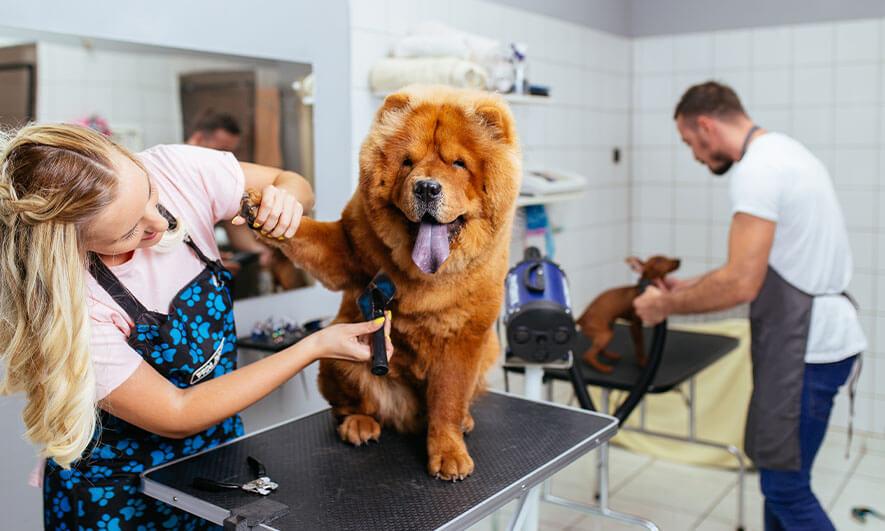
Finding the Perfect Location for Your Grooming Business
Choosing the right location for your grooming business is a pivotal step that can make or break your venture. Think of your shop as a cozy retreat for dogs and their owners, and location is the key to attracting a steady stream of clientele. Here are some essential factors to consider:
- Visibility: Aim for areas that are easily noticeable to passersby. A location near busy streets, shopping centers, or parks can lead to spontaneous visits.
- Accessibility: Ensure that your grooming salon is easily accessible for pet owners, including ample parking and nearby public transport options.
- Demographics: Analyze the local pet ownership statistics. Areas with a higher percentage of dog owners may yield greater business potential.
- Competition: Take a close look at nearby grooming services. A saturated market can be challenging, so consider how you can differentiate your services.
- Affordability: Balance your desire for a prime location with your budget. An ideal spot should not stretch your finances too thin, especially in the early stages.
Once you’ve narrowed down potential locations, it’s wise to conduct a site evaluation. Walk around the area at different times of the day to gauge foot traffic and observe the behavior of pet owners. Are they walking their dogs, stopping to chat with other owners, or visiting vet clinics nearby? This kind of research can offer insights into your ideal customer base.
Another crucial element is the size and layout of your space. A grooming business requires room for grooming stations, waiting areas, and storage. Consider a floor plan that fosters a calm environment for pets and their owners. A well-designed layout not only enhances workflow but also contributes to a positive customer experience.
Here’s a handy table that summarizes the key location factors:
| Factor | Importance | Action Item |
|---|---|---|
| Visibility | High | Choose a spot with high foot traffic. |
| Accessibility | Medium | Ensure easy parking and transport links. |
| Demographics | High | Research local pet ownership data. |
| Competition | Medium | Identify nearby grooming businesses. |
| Affordability | High | Evaluate rental costs versus expected income. |
Lastly, don’t underestimate the power of community engagement. Once you’ve chosen a location, immerse yourself in the local pet community. Attend pet events, collaborate with local pet stores or veterinarians, and consider hosting a grand opening event to introduce your services. Building relationships will not only help you attract customers but also foster loyalty and word-of-mouth referrals.
Navigating Licensing and Legal Requirements
Starting a dog grooming business involves more than just your love for furry friends; it requires navigating a series of licensing and legal requirements to ensure your operation runs smoothly and within the law. Before you put your grooming scissors to use, it’s essential to understand the necessary steps to become a legitimate business.
First and foremost, check your local laws and regulations regarding pet grooming services. Different states and municipalities have varying requirements, so it’s crucial to do your homework. Here are some common requirements you might encounter:
- Business License: This is typically required to legally operate any type of business.
- Sales Tax Permit: If you plan to sell products or services that are taxable, you will need this permit.
- Employer Identification Number (EIN): If you plan to hire employees, an EIN is necessary for tax purposes.
- Insurance: Liability insurance can protect you against potential claims and lawsuits.
Once you have a grasp on the basic licenses, consider the specific certifications related to dog grooming. While not always mandatory, certifications can enhance your credibility and attract more clients. Look for programs accredited by recognized organizations such as:
- National Dog Groomers Association of America (NDGAA): Offers certification programs for groomers.
- International Professional Groomers (IPG): Provides various levels of certification and training.
Next, you may need to comply with health and safety regulations, especially if you plan to operate a physical location. Compliance might include:
- Sanitation Standards: Ensure your grooming space is kept clean and safe for pets.
- Waste Disposal Regulations: Properly dispose of pet hair and waste to prevent health hazards.
Additionally, it’s wise to familiarize yourself with any zoning laws that may apply to your business location. Some areas have specific zoning regulations that restrict pet grooming businesses from operating in residential zones. Always check with your local zoning office to avoid any legal issues down the line.
Here’s a quick table summarizing the critical documents and permits you may need:
| Document/Permit | Description |
|---|---|
| Business License | Legal permission to operate your business. |
| Sales Tax Permit | Required for businesses selling taxable goods/services. |
| EIN | Needed if hiring employees for tax purposes. |
| Liability Insurance | Protects against legal claims related to your services. |
keep in mind that ongoing education is key in the grooming industry. Stay updated on new regulations, best practices, and emerging trends to keep your business compliant and competitive. Joining local grooming associations can provide valuable resources and networking opportunities that will further enhance your knowledge.
Crafting a Standout Brand That Attracts Customers
Building a brand that resonates with customers is essential in the competitive world of dog grooming. Your brand is more than just a logo; it’s the entire experience you offer. Here are some key elements to consider:
- Identify Your Unique Selling Proposition (USP): What makes your grooming business different? Whether it’s eco-friendly products, specialized breed grooming, or exceptional customer service, make your USP clear.
- Develop a Memorable Logo: Your logo should reflect your brand’s personality. Consider hiring a professional designer to create a unique and memorable logo that appeals to dog owners.
- Create a Consistent Color Palette: Choose colors that evoke trust and warmth. Consistency in color across your marketing materials will improve brand recognition.
- Craft a Compelling Brand Story: Share your journey and passion for dog grooming. A relatable story can help potential customers feel a connection to your business.
- Engage on Social Media: Use platforms like Instagram and Facebook to showcase your work. Share before-and-after photos, customer testimonials, and behind-the-scenes content to engage with your audience.
It’s also vital to consider your target market. Understanding who your ideal clients are will help you tailor your branding efforts effectively. You might focus on:
- Busy professionals looking for convenient services
- Pet owners who prioritize luxury grooming experiences
- Families seeking affordable yet quality grooming
To further enhance your brand, consider the following strategies:
| Strategy | Description |
|---|---|
| Customer Loyalty Programs | Encourage repeat business through discounts or rewards for frequent visits. |
| Referral Discounts | Offer incentives for customers who refer new clients. |
| Seasonal Promotions | Create themed packages for holidays or special events to attract new customers. |
Lastly, never underestimate the power of customer feedback. Encourage reviews and testimonials, and use them to refine your services. A positive reputation will help your brand stand out, drawing in new customers eager to experience what you have to offer.

Building an Impressive Portfolio of Your Work
Creating a portfolio that showcases your dog grooming skills is essential for attracting clients and establishing a strong presence in the industry. A well-curated collection of your work not only highlights your expertise but also reflects your unique style and approach to grooming. Here are some key elements to consider when building an impressive portfolio:
- High-Quality Photos: Invest in a good camera or smartphone to take clear, high-resolution images of the dogs you groom. Natural lighting works best, so try to shoot outdoors or near windows.
- Before and After Shots: Capture the transformation of each dog with side-by-side images. This visual storytelling effectively demonstrates your skill and the impact of your grooming services.
- Diverse Grooming Styles: Showcase a variety of grooming styles that you can perform. Include different breeds, cuts, and special styles to appeal to a broader audience.
- Client Testimonials: Pair your images with positive feedback from satisfied customers. Testimonials can significantly enhance credibility and attract new clients.
In addition to showcasing your work, consider organizing your portfolio in a user-friendly manner. A digital portfolio on a website or social media platform can reach a wider audience. Here’s how to structure it:
| Section | Description |
|---|---|
| About Me | Share your story, experience, and passion for dog grooming. |
| Grooming Portfolio | Display your best photos, categorized by breed or style. |
| Services Offered | Detail the grooming services you provide and pricing. |
| Contact Information | Make it easy for potential clients to reach you. |
Don’t forget to keep your portfolio updated. Regularly add new work to reflect your growth and adapt to changing trends. This shows potential clients that you are active in the grooming community and continuously refining your skills.
Lastly, consider leveraging social media platforms such as Instagram or Facebook to share your portfolio. Use relevant hashtags to increase visibility and engage with the community. You can also create short videos to showcase your grooming process, providing a behind-the-scenes look at your work, which can further entice potential clients.
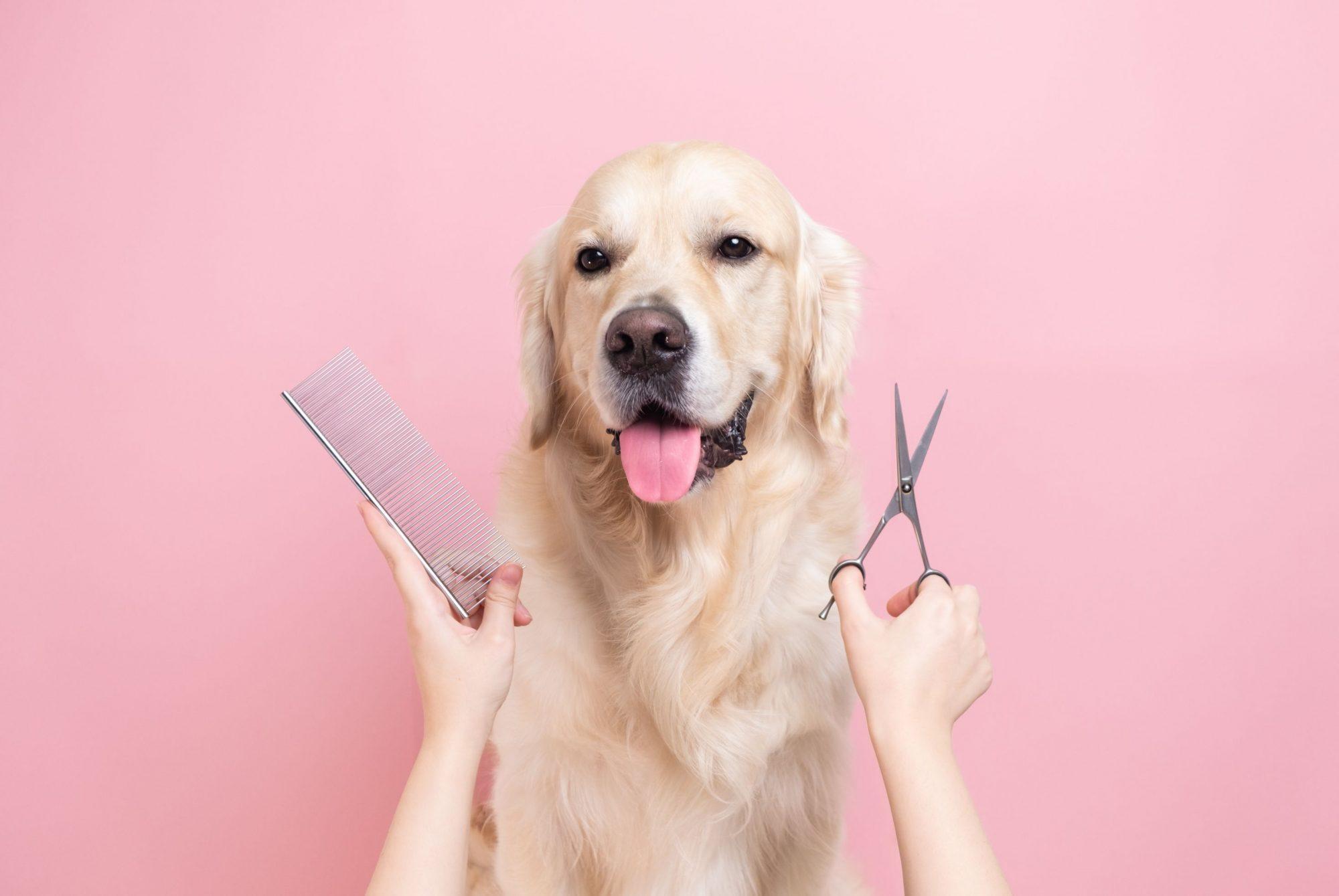
Mastering Grooming Techniques and Best Practices
When it comes to building a successful dog grooming business, is essential. This not only enhances the quality of your services but also ensures the safety and comfort of the pets you work with. Here are some key techniques and practices to consider:
- Know Your Tools: Familiarize yourself with the different types of grooming tools available, including clippers, scissors, brushes, and combs. Each breed may require specific tools, so understanding their uses will enhance your efficiency.
- Understand Coat Types: Different dogs have different coat types, and knowing how to handle each one is crucial. From coarse and wiry to smooth and silky, mastering grooming techniques for various coat types will help you provide tailored services.
- Practice Proper Bathing Techniques: Bathing is fundamental in grooming. Use high-quality shampoos and conditioners suited for the dog’s skin and coat type. Ensure water temperature is comfortable, and rinse thoroughly to avoid skin irritation.
- Nail Trimming Skills: Nail care is often overlooked. Learn the correct way to trim dog nails without hurting them. Using a nail grinder can be less intimidating for some dogs compared to clippers.
- Ear and Teeth Care: Grooming isn’t just about fur. Regularly check and clean ears to prevent infections, and brush teeth to promote dental health. Offering these services can set you apart from competitors.
Incorporating best practices into your grooming routine will not only improve your skills but also enhance your business’s reputation. Here are some best practices to adopt:
- Prioritize Safety: Always ensure the safety of pets in your care. Use non-slip mats, keep sharp tools out of reach, and maintain a calm environment to minimize stress for both the pets and their owners.
- Stay Educated: The pet grooming industry is constantly evolving. Attend workshops, webinars, and grooming expos to stay updated on the latest techniques and products.
- Build Strong Relationships: Establish a rapport with pet owners. Understanding their preferences and concerns will not only enhance the grooming experience but also foster loyalty.
- Keep Your Workspace Clean: A tidy grooming area reflects professionalism. Regularly clean tools and equipment, and maintain a hygienic working environment for both pets and owners.
To further streamline your grooming processes, consider implementing a simple tracking system for your clients. Here’s a basic layout you can use:
| Client Name | Pet Name | Last Grooming Date | Notes |
|---|---|---|---|
| Jane Doe | Bella | 2023-09-15 | Needs special care for sensitive skin |
| John Smith | Max | 2023-09-20 | Prefers a short clip |
By mastering these grooming techniques and best practices, you can elevate your dog grooming business and create a loyal customer base. Always remember that the foundation of your success lies in the quality of care you provide to your furry clients.

Setting Competitive Pricing and Service Packages
Establishing the right pricing structure is crucial for your dog grooming business, as it not only affects your profit margins but also influences customer perception. To set competitive prices, start by conducting market research. Analyze what other local groomers charge for similar services. This will give you a benchmark to work with, ensuring your prices are both attractive and fair.
When crafting your service packages, consider offering a variety of options that cater to different customer needs and budgets. Here are some ideas for packages you can create:
- Basic Grooming Package: A simple wash, cut, and dry.
- Deluxe Grooming Package: Includes everything in the basic package plus nail trimming, ear cleaning, and a scented spray.
- Premium Package: All-inclusive service with a massage, teeth brushing, and a specialty shampoo.
- Seasonal Packages: Tailor services according to seasons, such as summer trims or winter coat treatments.
To enhance your offerings, consider implementing add-ons that can boost revenue without requiring extensive additional time. Popular add-ons might include:
- De-shedding Treatments: Perfect for dogs that shed heavily.
- Flea and Tick Treatments: Essential for pet owners looking to maintain their dog’s health.
- Pet Spa Services: Including pawdicures and aromatherapy.
Another key aspect of pricing is understanding your costs. Be sure to account for all expenses associated with your services, including products, equipment, labor, and overhead. Creating a simple pricing table can help clarify your offerings and make it easier for customers to choose the right package for their furry friends. Here’s a sample layout:
| Package | Price | Services Included |
|---|---|---|
| Basic Grooming | $40 | Wash, Cut, Dry |
| Deluxe Grooming | $60 | Basic + Nail Trim, Ear Cleaning, Scented Spray |
| Premium Package | $80 | Deluxe + Massage, Teeth Brushing, Specialty Shampoo |
be transparent with your pricing. Display your rates on your website and in your salon, and clearly outline what’s included in each package. This transparency builds trust with your clients and encourages them to choose your grooming services. Offering promotional deals or loyalty programs can also entice new customers and keep them coming back.
By carefully considering your pricing and service packages, you’ll not only attract new clients but also create a loyal customer base that values the quality and care you provide in your grooming services.
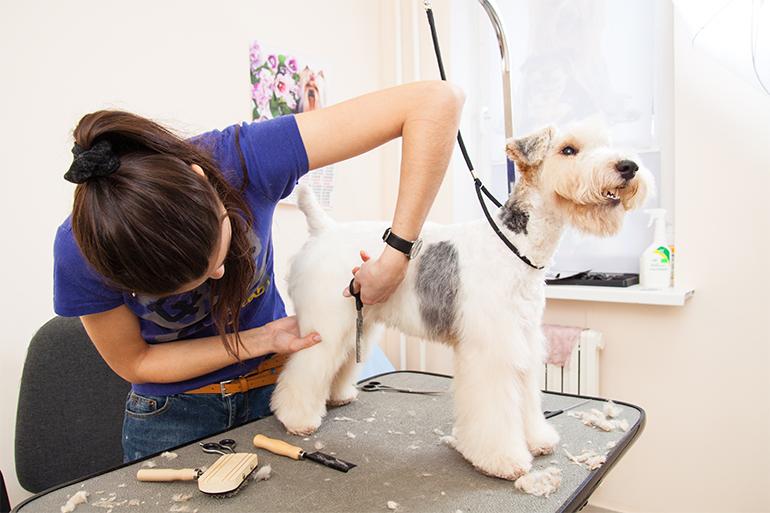
Marketing Your Dog Grooming Business Effectively
Marketing your dog grooming business requires a blend of creativity, strategic planning, and community engagement. To stand out in a competitive market, consider employing a mix of online and offline tactics that resonate with your target audience. Here are some effective strategies to get you started:
- Establish a Strong Online Presence: Create a user-friendly website showcasing your services, pricing, and testimonials. Use high-quality images of happy, freshly groomed dogs to captivate potential clients.
- Leverage Social Media: Platforms like Instagram and Facebook are perfect for sharing before-and-after grooming photos. Engage with followers through polls, contests, and live demonstrations to foster a community around your brand.
- Optimize for Local SEO: Ensure your business appears in local searches by claiming your Google My Business listing. Use relevant keywords like “dog grooming near me” throughout your site to attract nearby dog owners.
- Collaborate with Local Businesses: Partner with pet shops, veterinarians, and dog trainers to cross-promote services. Referral programs can also incentivize these businesses to recommend you to their clients.
Don’t underestimate the power of traditional marketing methods. While digital strategies are essential, local outreach can significantly enhance your visibility:
- Participate in Community Events: Attend local fairs, pet expos, or charity events. Set up a booth where you can showcase your grooming skills, offer free samples, or provide discounted grooming packages.
- Distribute Flyers and Business Cards: Leave flyers at pet supply stores, veterinary clinics, and community centers. A well-designed flyer can be an effective way to share your services and offer promotions.
- Utilize Customer Referrals: Encourage satisfied customers to refer friends and family. Consider implementing a referral program that rewards clients for bringing in new business.
Lastly, create a loyalty program that keeps customers coming back. Offering discounts or free grooming sessions after a certain number of visits can boost customer retention. Here’s a simple table that outlines a potential loyalty program:
| Visits | Reward |
|---|---|
| 5 | 10% off next grooming |
| 10 | Free nail trimming |
| 15 | 15% off entire service |
By effectively marketing your dog grooming business through a mix of online presence, community involvement, and customer engagement, you’ll build a loyal client base and ensure your success in this rewarding industry.

Leveraging Social Media to Grow Your Clientele
Social media is an invaluable tool for expanding your clientele in any business, including dog grooming. With the right strategies, you can create a dynamic online presence that showcases your services and attracts new customers. Here’s how to harness the power of social media effectively.
First and foremost, choose the right platforms. Each social media network has its unique audience and features that can benefit your dog grooming business:
- Instagram: Perfect for sharing eye-catching photos of your adorable furry clients before and after grooming.
- Facebook: Ideal for building a community, sharing updates, and engaging with pet owners through posts and comments.
- TikTok: Utilize short, entertaining videos to show grooming tips, funny pet moments, or transformations that capture attention.
Next, creating engaging content is crucial. Your posts should not only promote your services but also resonate with pet owners. Consider sharing:
- Tips for maintaining a dog’s coat between grooming sessions.
- Behind-the-scenes glimpses of your grooming process.
- Heartwarming client testimonials in video or image format.
Incorporating user-generated content can amplify your reach. Encourage your clients to share photos of their groomed pets with a specific hashtag related to your business. This not only builds community but also serves as authentic testimonials that can attract new clients.
It’s also wise to run targeted advertising campaigns. Platforms like Facebook and Instagram allow you to create ads that reach potential customers in your area. You can promote special offers, seasonal discounts, or newly introduced services. Make sure to use stunning visuals and persuasive copy to grab attention.
Engagement is key in social media marketing. Respond promptly to comments and messages, and engage with your followers by asking questions or running polls. This builds a rapport with potential clients and shows that you care about their pets just as much as they do.
Consider collaborating with local pet influencers or pet-related businesses. Cross-promotion can introduce your brand to a broader audience. For instance, a local dog trainer can share your grooming services, while you can promote their training sessions in exchange.
Lastly, analyze your performance regularly. Use built-in analytics tools on social media platforms to track engagement rates, follower growth, and the effectiveness of your campaigns. Adjust your strategies based on what works best for your audience to ensure continued growth.
By leveraging social media effectively, you’ll not only grow your clientele but also establish a strong community of pet lovers who will become loyal advocates for your dog grooming business.

Fostering Customer Relationships for Repeat Business
Building strong connections with your clients is an essential part of running a successful dog grooming business. When customers feel valued and understood, they are more likely to return, and even recommend your services to friends and family. Here are some effective strategies to foster those all-important customer relationships:
- Personalized Service: Take the time to learn your clients’ names and their pets’ preferences. A simple greeting can make a pet owner feel special and appreciated.
- Follow-Up Communication: After a grooming session, send a quick thank-you message or a follow-up email to gather feedback. It shows that you care about their experience and are committed to continuous improvement.
- Offer Loyalty Programs: Create a rewards program that incentivizes repeat visits. For example, after a certain number of grooming sessions, offer a free service or a discount. This not only encourages return visits but also makes customers feel recognized for their loyalty.
Moreover, consider hosting special events or workshops that promote community engagement. This could be a puppy playdate or a grooming tips seminar. Such events allow clients to bond over shared interests and create a sense of community around your brand.
To enhance your communication, consider the following:
| Type of Communication | Purpose | Frequency |
|---|---|---|
| Thank You Notes | Show appreciation | After each service |
| Monthly Newsletters | Share tips and promotions | Monthly |
| Social Media Engagement | Build community and interact | Daily/Weekly |
Additionally, leveraging social media platforms can be a powerful tool in maintaining these relationships. Regularly post photos of happy, freshly-groomed pets, share customer testimonials, and interact with your audience. Responding to comments and messages promptly shows that you’re not just a business, but a community member who genuinely cares.
never underestimate the power of word-of-mouth marketing. Encourage satisfied customers to leave reviews online, and consider offering them a small incentive for referring new clients. Personal recommendations can significantly boost your business’s credibility and attract new customers.

Planning for Growth and Future Expansion
As you embark on your dog grooming business journey, it’s crucial to think beyond the initial stages. is essential to ensure your business remains competitive in a thriving market. Here are some strategies to help you lay the groundwork for long-term success:
- Market Research: Continuously analyze market trends and consumer preferences. Staying updated on what services are in demand can provide insights into potential expansion opportunities.
- Diverse Service Offerings: Consider adding complementary services such as dog walking, pet sitting, or dog training. This not only attracts more customers but also enhances customer loyalty.
- Location Analysis: If your initial location proves successful, think about opening another branch in a different neighborhood. Ensure the new location has ample demand and accessibility for your target market.
- Investing in Technology: Utilize scheduling software, customer management systems, and online booking tools to streamline operations. This efficiency can free up time for you to focus on growth strategies.
Creating a strong brand identity is another key factor in your growth strategy. A memorable brand will not only attract new clients but also encourage repeat business. Consider the following:
- Brand Story: Share your passion for animals and what inspired you to start your business. A personal touch can resonate with pet owners and set you apart from competitors.
- Consistent Branding: Use cohesive branding across all platforms, including social media, business cards, and your website. This helps in building recognition and trust with your audience.
Moreover, think about establishing partnerships and collaborations within your community. Aligning with local veterinarians, pet stores, or dog trainers can lead to referrals and joint marketing efforts. Networking can significantly enhance your visibility and credibility.
As you plan for expansion, it’s vital to monitor your financial health. Keep tabs on your revenue, expenses, and profit margins to identify areas for improvement. Below is a simple table to help you track essential financial metrics:
| Month | Revenue | Expenses | Profit |
|---|---|---|---|
| January | $5,000 | $3,000 | $2,000 |
| February | $6,000 | $3,500 | $2,500 |
| March | $7,500 | $4,000 | $3,500 |
Lastly, always be open to feedback. Regularly solicit input from your clients about their experiences and suggestions for improvement. Being receptive can help you adapt to the evolving needs of your customers and ensure your business remains at the forefront of the industry.
Frequently Asked Questions (FAQ)
Q&A: How to Start a Dog Grooming Business: The Ultimate Guide (9 Steps)
Q: Why should I consider starting a dog grooming business?
A: Great question! The pet industry is booming, and dog grooming is a vital part of pet care. If you love animals and want to turn that passion into a profitable venture, this could be your dream job! Plus, dog owners are always on the lookout for reliable, quality grooming services, providing you with a steady stream of clients.
Q: What’s the first step I should take to start my dog grooming business?
A: The first step is to do your research! Understand the grooming market in your area. Look into your potential competition and identify what services they offer. This will help you carve out your niche and figure out what unique services you can provide.
Q: Do I need formal training to become a dog groomer?
A: While formal training isn’t mandatory, it is highly recommended. Attending a grooming school can equip you with essential skills and techniques that will set you apart from the competition. Plus, being professionally trained gives potential clients confidence in your abilities.
Q: What equipment do I need to get started?
A: You’ll need some essential grooming tools like clippers, scissors, brushes, and a sturdy grooming table. Don’t forget about shampoos, conditioners, and drying equipment. Investing in quality tools from the start will pay off in the long run!
Q: How do I set my pricing?
A: Setting your prices can be tricky, but a good rule of thumb is to analyze your competition and see what they charge for similar services. Consider your costs, the time it takes for each grooming session, and don’t forget to factor in your skills and experience. It’s important to be competitive while also ensuring you’re making a profit!
Q: What are the best marketing strategies for my grooming business?
A: There are many effective ways to market your grooming business! Social media is a powerful tool—share adorable before-and-after photos of your furry clients, and encourage happy customers to leave positive reviews. Consider partnering with local pet stores or offering referral discounts to widen your reach.
Q: Is it better to have a mobile grooming service or a physical location?
A: Both options have their pros and cons. A mobile grooming service offers convenience for your clients and can reduce overhead costs, while a physical location may provide a more stable clientele and the ability to offer additional services. Think about what works best for your lifestyle and what your target market prefers.
Q: How can I develop customer loyalty?
A: Building relationships with your clients is key. Offer exceptional service, be friendly, and remember details about their pets. Consider implementing a loyalty program or offering discounts for repeat visits. Happy clients will keep coming back and will also spread the word about your fantastic grooming skills!
Q: What should I do if I encounter challenges along the way?
A: Challenges are part of any business journey, so don’t be discouraged! Stay flexible and open-minded. Reach out to other grooming professionals for advice, and continuously educate yourself on industry trends. Remember, persistence is key!
Q: Any final tips for someone ready to dive into the dog grooming business?
A: Absolutely! Keep your passion for pets at the forefront of everything you do. Continually work on improving your skills, and don’t hesitate to seek out mentorship from experienced groomers. With dedication and a love for animals, your dog grooming business can thrive!
Ready to embark on your dog grooming adventure? Follow these steps, and you’ll be well on your way to running a successful business that not only fulfills your passion but also brings joy to pets and their owners alike!
In Retrospect
And there you have it—the ultimate guide to kickstarting your very own dog grooming business! With these nine steps in your toolkit, you’re not just ready to make a splash in the pet industry; you’re set to create a haven for furry friends and their owners alike.
Remember, every big dream starts with a single step, and your passion for pups can transform into a thriving venture. So, roll up those sleeves, grab your grooming tools, and embrace the joy of making those tails wag.
If you ever feel overwhelmed, just remember: every successful business owner was once where you are now. Keep learning, stay motivated, and don’t hesitate to reach out for support from fellow groomers or local business networks.
We can’t wait to see you turn your passion into a profitable reality. Happy grooming, and here’s to the journey ahead! 🐶✂️






